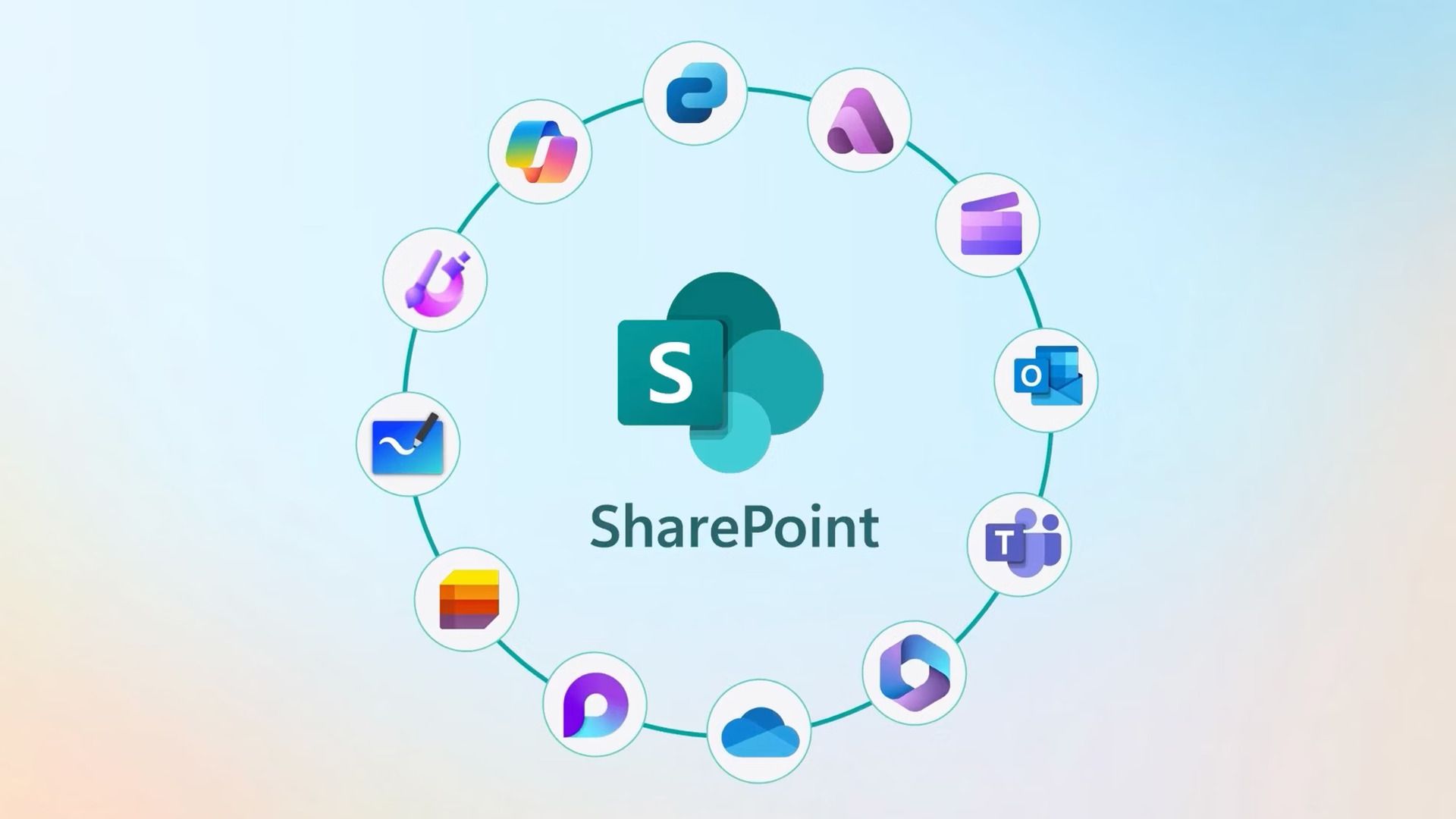- The Digital Bridge with Lawrence Eta
- Posts
- Scaling Fast, Breaking Systems?
Scaling Fast, Breaking Systems?
Tech News, Global Digital Transformation, Thought Leadership and Current Trends


Welcome to this week’s edition of The Digital Bridge.
This week’s briefing brings together five stories that reflect critical shifts in AI infrastructure, digital trust, and economic adaptation. Google’s latest update shows the scale of AI integration across its platforms, while Amazon is moving to make enterprise AI agents more usable across sectors.
In Africa, fintech firms continue to gain global recognition for designing market-specific systems that scale, highlighting the continent’s evolving role in financial innovation. At the same time, hundreds of organizations have been impacted by a Microsoft SharePoint breach, raising fresh concerns about enterprise cybersecurity. In North America, upcoming changes to EV tax incentives are accelerating purchasing decisions and testing consumer demand in real time.
Let’s get into it:
AI Adoption & Platform Scale: Google’s AI Overviews Hit 2 Billion Monthly Users as AI Mode Expands Across U.S. and India
EV Incentives Expire in September: U.S. Buyers Drive Q3 Surge
Ai Infrastructure In Focus: Amazon Expands Enterprise Tools for Agent Deployment
The Fintech Rebound: Africa’s Top Fintechs Make CNBC’s Global List
Cybersecurity Watch: 400+ Organizations Breached via SharePoint Zero-Day
Find out why 1M+ professionals read Superhuman AI daily.
AI won't take over the world. People who know how to use AI will.
Here's how to stay ahead with AI:
Sign up for Superhuman AI. The AI newsletter read by 1M+ pros.
Master AI tools, tutorials, and news in just 3 minutes a day.
Become 10X more productive using AI.
AI ADOPTION & PLATFORM SCALE:
Google’s AI Overviews Hit 2 Billion Monthly Users as AI Mode Expands Across U.S. and India

Google is signaling a rapid surge in user engagement across its consumer-facing AI ecosystem. CEO Sundar Pichai announced that AI Overviews, the search feature summarizing results with generative AI, has reached 2 billion monthly users globally, up from 1.5 billion in May. Meanwhile, AI Mode, which enables users to interact with Search through a conversational interface, has surpassed 100 million monthly users across the U.S. and India.
Gemini, Google’s flagship AI app, now counts 450 million active users each month, with daily queries increasing more than 50% since Q1. The platform’s reach is being extended with upcoming additions like Deep Search and personalized response tools, designed to enhance the AI chat experience.
Google’s developer ecosystem is growing in parallel: over 9 million developers are building with Gemini, and more than 70 million videos have been generated using the Veo 3 model since May. Google Vids, its Workspace-integrated text-to-video tool, now sees nearly 1 million active users. In Google Meet, more than 50 million users have utilized AI-powered meeting notes.
While the numbers suggest widespread AI adoption, some critics have questioned whether the engagement is organic or driven by forced product integrations. Still, with 980 trillion tokens processed monthly, double the number reported just two months ago, Google is making the case for scale, integration, and continuous user demand.
Despite this momentum, investor reaction to Google’s plans for higher capital expenditure in AI infrastructure led to a dip in its stock following the Q2 earnings call. Yet for Google, the message is clear: its long-term, full-stack AI strategy is designed to cement its leadership in an increasingly crowded AI race.
EV INCENTIVES EXPIRE IN SEPTEMBER:
What’s at Stake in the Race for Compute Power

As the U.S. prepares to sunset key EV tax credits, Q3 is shaping up to be a make-or-break moment for the electric vehicle market. On July 4, the “One Big Beautiful Bill Act” officially ended provisions from the 2022 Inflation Reduction Act that offered $7,500 credits for new EVs, $4,000 for used ones, and generous lease-based incentives. Those benefits expire on September 30.
Ford and other automakers are moving quickly. Through its extended Power Promise program, Ford is offering complimentary home chargers and installations to EV buyers, while leasing deals have hit record highs across the industry. Hyundai, Lexus, Kia, and GM are among those aggressively courting buyers with 0% financing and deeply discounted lease rates.
Analysts expect a sharp uptick in EV sales through the end of Q3, followed by a drop-off in Q4 as market momentum collides with policy reality. For many U.S. consumers, this moment represents the last major opportunity to take advantage of federally backed EV savings.
But beyond the transaction window, this shift reflects deeper questions: How will policy consistency shape the next chapter of clean energy adoption? And can the EV market hold its gains without incentives?
AI INFRASTRUCTURE IN FOCUS:
Amazon Expands Enterprise Tools for Agent Deployment

Amazon Web Services (AWS) is positioning itself at the forefront of enterprise-ready AI with the launch of AgentCore, a new toolkit designed to help companies operationalize autonomous agents. Unveiled at the AWS Summit in Manhattan, AgentCore provides tools for memory management, web access, agent coordination, and integration with external digital services, key components needed to transition from proof of concept to production at scale.
The toolkit is part of AWS’s broader strategy to support the rise of agentic AI, offering a modular framework that allows businesses to select the tools they need rather than being locked into a single ecosystem. Importantly, AgentCore is model-agnostic, giving companies access to a catalog of foundation models through Amazon Bedrock.
This level of flexibility could benefit firms like Intuit, which has already deployed its own internal AI agent framework, GenOS. As AWS matures its agentic infrastructure, enterprise adoption may accelerate, particularly among organizations looking to reduce build complexity without sacrificing customization.
Beyond the toolkit, Amazon is investing heavily in foundational agent R&D. Its AGI SF Lab, formed following its acquisition of AI startup Adept, is now developing systems like Nova Act, a model enabling agents to navigate and act within web browsers. This lab marks Amazon’s growing ambition to support both digital and physical world applications of AI agents.
AWS executives and research leads acknowledged that while agentic demos have dominated headlines for years, production-ready deployments have been slow to materialize. However, with improved tooling and reliability, that dynamic may be shifting.
THE FINTECH REBOUND:
Africa’s Top Fintechs Make CNBC’s Global List

Nine African companies have landed on CNBC’s 2025 World’s Top 300 Fintech list, reflecting a broader narrative: Africa’s fintech industry is no longer emerging, it’s scaling.
From Moniepoint’s billion-dollar valuation and billion-plus monthly transactions to M‑KOPA’s $2B in disbursed digital credit, these companies are building financial infrastructure tailored to Africa’s realities. Their approach prioritizes accessibility over hype, leveraging mobile-first models, embedded payments, and credit systems that work in cash-heavy economies.
The standout firms include:
Moniepoint (Nigeria) - Unicorn status, $22B+ in Q1 transaction volume, 10M customers
M‑KOPA (Kenya/Nigeria/Ghana/Uganda) - $2B disbursed in credit, 65% YoY growth
Interswitch (Nigeria) - Regional backbone with $192M annual revenue
Fawry (Egypt) - 52.9M customers, 240M wallet transactions in 2024
OPay (Nigeria/Kenya/Ghana) - $2.75B valuation, 50M+ users
PalmPay (Nigeria) - 35M users, up to 15M daily transactions
Paymob (Egypt/MENA) - 390K merchants, $90M in total funding
Yoco (South Africa) - 200K+ SMB merchants, expanding continent-wide
PiggyVest (Nigeria) - 7M users, over ₦2.6T paid out in H1 2025
Their inclusion on this global stage signals that Africa’s fintech story is no longer about leapfrogging the West, it’s about setting new benchmarks for inclusion, profitability, and scalability. And while challenges like regulatory hurdles and currency volatility remain, the momentum is undeniable.
These platforms aren’t just disrupting legacy systems, they’re redefining what financial empowerment looks like in frontier markets.
CYBERSECURITY WATCH:
400+ Organizations Breached via SharePoint Zero-Day

A newly discovered vulnerability in Microsoft SharePoint has led to widespread breaches across public and private sectors, with at least 400 organizations affected, and counting.
Discovered by Dutch firm Eye Security, the zero-day vulnerability (CVE-2025-53770) has been actively exploited since early July. It impacts self-hosted SharePoint servers, allowing attackers to run malicious code remotely and access internal files and networks.
Among those impacted is the U.S. National Nuclear Security Administration (NNSA), responsible for maintaining the country’s nuclear arsenal. While the Department of Energy downplayed the scope, noting “minimal impact,” security researchers believe the real number of compromised systems is likely far higher.
Microsoft has issued emergency patches, but the threat persists. Both Microsoft and Google report evidence of state-affiliated hacking groups, including entities tied to China, leveraging the vulnerability. The Chinese government has denied involvement.
For now, the breach highlights a growing concern: infrastructure tools many organizations depend on are also high-value targets. As attackers focus on widely used enterprise platforms like SharePoint, the urgency for proactive patching, network segmentation, and third-party risk audits becomes even more critical.
Built for Managers, Not Engineers
AI isn’t just for developers. The AI Report gives business leaders daily, practical insights you can apply to ops, sales, marketing, and strategy.
No tech jargon. No wasted time. Just actionable tools to help you lead smarter.
Start where it counts.
Final Thoughts: BUILDING WITH INTENTION
AI tools are scaling at record speed. But as mass hacks exploit weak infrastructure and personal data gets casually absorbed by assistants, it’s clear: technology isn’t neutral.
From Africa’s fintech rise to Google’s 2B-user milestone, the real signal is in how we build, not just what we build. Growth is easy to chase. Resilience, security, and inclusion take design.
The future won’t be decided by innovation alone, but by the values we embed in the systems we let scale. Don’t miss out on future updates, follow me on social media for the latest news, behind-the-scenes content, and more:
Twitter: Click here
Facebook: Click here
Instagram: Click here
LinkedIn: Click here
Enjoyed this newsletter? Share it with friends and help us spread the word!
Until next time, happy reading!
JOIN THE COMMUNITY
The Bridging Worlds Book
Discover Bridging Worlds, a thought-provoking book on technology, leadership, and public service. Explore Lawrence’s insights on how technology is reshaping the landscape and the core principles of effective leadership in the digital age.
Order your copy today and explore the future of leadership and technology.
SHARE YOUR THOUGHTS
We value your feedback!
Your thoughts and opinions help us improve our newsletter. Please take a moment to let us know what you think.
How would you rate this newsletter? |



Reply